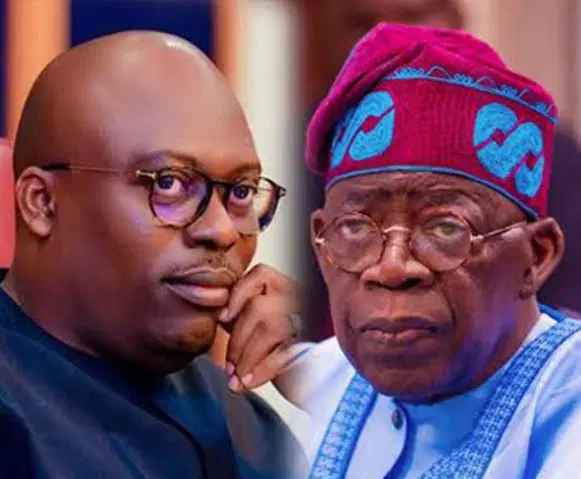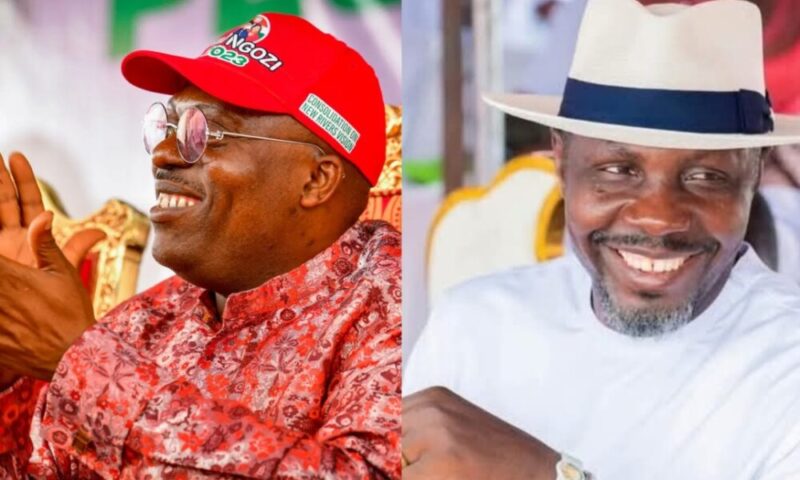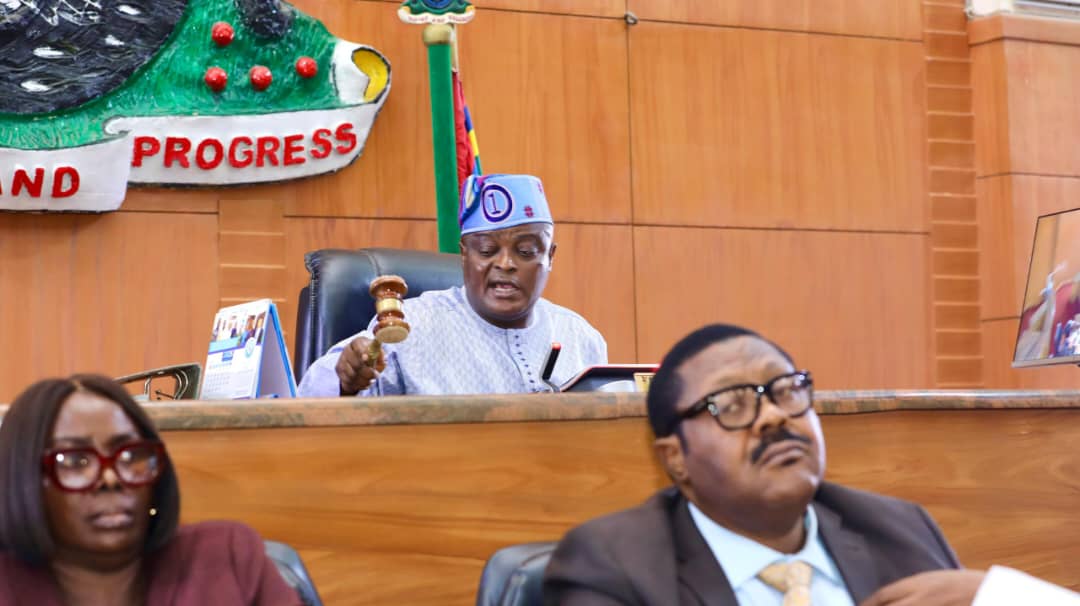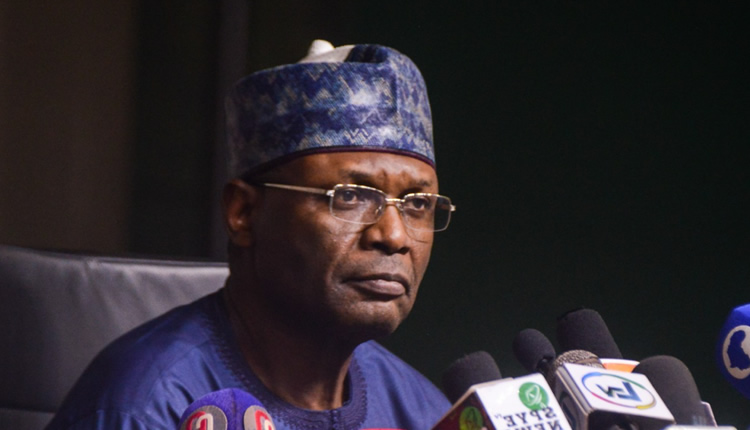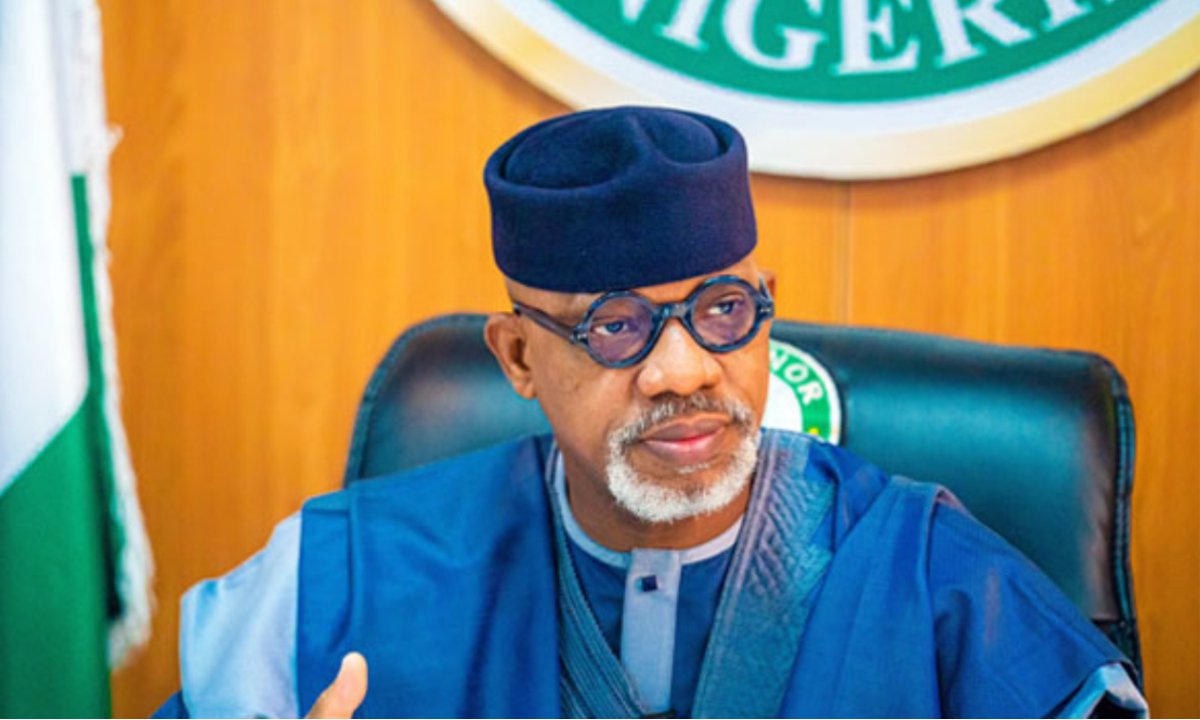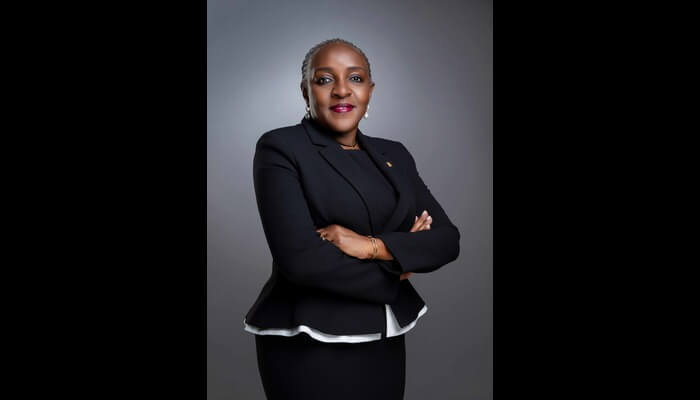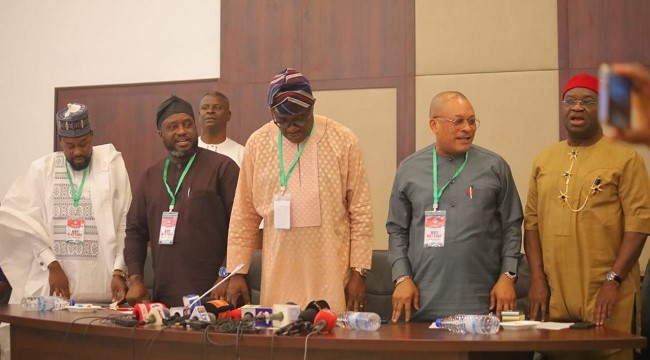Former President Goodluck Jonathan and other top figures are reportedly pressuring President Bola Tinubu to reinstate suspended Rivers State Governor Siminalayi Fubara ahead of Nigeria’s Democracy Day on June 12
[dropcap]F[/dropcap]ormer President Goodluck Jonathan and other prominent Nigerians are reportedly mounting pressure on President Bola Tinubu to reinstate suspended Rivers State Governor Siminalayi Fubara ahead of June 12, Democracy Day.
Also read: Egbesu Ijaws of Gbaramatu warn President Tinubu over Fubara’s suspension, threaten action
Sources close to the matter say Jonathan has had at least one extended phone conversation with President Tinubu, urging him to reverse the controversial suspension of Fubara, which many critics have described as unconstitutional.
Fubara was suspended on March 18 for six months by President Tinubu, who also removed his deputy and suspended the state House of Assembly.
Critics argue the action violated the Nigerian Constitution, citing Section 305, which outlines procedures for declaring a state of emergency but does not provide for the removal of elected officials.
They also point to Section 188, which gives only the state House of Assembly the authority to impeach a sitting governor.
The suspension was widely seen as the climax of a political rift between Fubara and his predecessor, now-Federal Capital Territory Minister Nyesom Wike, over control of the Peoples Democratic Party (PDP) structure in Rivers State. The House, which had moved to impeach Fubara, was largely seen as loyal to Wike.
As Nigeria prepares to mark the 26th anniversary of uninterrupted democratic governance on June 12, many are hopeful that Fubara could be reinstated to coincide with the symbolic celebration of Democracy Day.
Observers recall President Tinubu’s own words during last year’s Democracy Day address, where he pledged to protect democratic institutions and uphold the Constitution.
President Tinubu has already declared a state of emergency in Rivers State, installing retired Vice Admiral Ibok-Etteh Ibas as a sole administrator—an unprecedented move in Nigeria’s democratic history.
As June 18 approaches, which will mark three months since the imposition of emergency rule, expectations are rising that Tinubu may take action.
In a bid to resolve the crisis, Fubara reportedly held two private meetings with President Tinubu—one in April in London and another in Lagos last week.
These meetings are said to have focused on restoring peace in Rivers, reinstating democratic institutions, and reaffirming Fubara’s loyalty to the president.
The Lagos meeting, which produced a now-viral photo of Tinubu and Fubara smiling together, has fueled speculation that a resolution is near.
Mr. President is a democrat. He now knows that the Rivers people love their governor. The suspension is an aberration. He should waste no further time in reversing that decision.
In the days leading up to that meeting, Fubara publicly urged his supporters not to criticize either President Tinubu or Minister Wike, describing the president’s intervention as timely.
Sources say the move is part of Fubara’s broader strategy to align politically with Tinubu, possibly even defecting to the All Progressives Congress (APC).
Some suggest that his recent political maneuvers mirror those of Delta State Governor Sheriff Oborevwori and Akwa Ibom Governor Umo Eno, both of whom have reportedly shifted allegiance to the APC.
Reports indicate that Wike was unaware of the Lagos meeting between Tinubu and Fubara. In a recent interview, the FCT minister confirmed he had not seen the suspended governor since a previous visit to his Abuja residence.
He continues to express dissatisfaction with the state of emergency, arguing that it has offered Fubara political protection.
Wike maintains that Fubara betrayed him and aligned with long-time political opponents such as Celestine Omehia, Uche Secondus, and Abiye Sekibo—figures who once opposed Wike’s political dominance in Rivers State.
Political insiders suggest that Tinubu is pursuing a dual-track strategy in Rivers. By working with Fubara, the president could secure political support in the region ahead of the 2027 elections.
Alternatively, Fubara’s defection to the APC could strengthen Tinubu’s foothold in the state while sidelining Wike.
Notably, President Tinubu presented the controversial N1.4 trillion Rivers State budget directly to the National Assembly, effectively shielding Fubara from impeachment threats by hostile lawmakers.
Ijaw National Congress President, Prof. Benjamin Okaba, urged Tinubu to restore Fubara’s mandate, stating the suspension was unjust.
He praised Fubara’s performance in office, highlighting the completion of 52 projects without incurring debt.
Opunabo Inko-Tariah, a former aide to Wike, echoed similar sentiments, saying the suspended governor had demonstrated prudence and calm leadership in the face of crisis.
In addition to Jonathan, at least two other former Nigerian presidents are believed to have expressed concern over the crisis.
According to sources, Fubara’s recent visits to President Tinubu were encouraged by these elder statesmen, further adding pressure on the presidency to act swiftly.
Also read: Tompolo vows Fubara will return as Rivers Governor
While Tinubu’s final decision remains closely guarded, political analysts believe a reinstatement of Fubara before June 12 would send a strong message about the president’s commitment to democratic governance.


